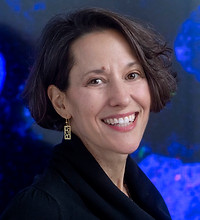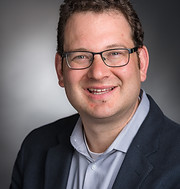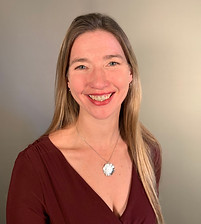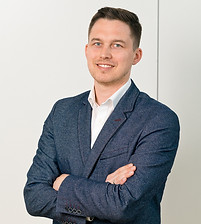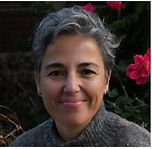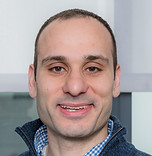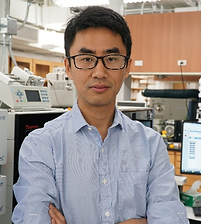Previous Speakers (2021 part 1)
Some seminars were recorded and accessible for a limited time on our youtube channel.
January 7th, 2021
Host: Mikolaj Slabicki

Max Jan
Massachusetts General Hospital
Reversible ON- and OFF-switch chimeric antigen receptors controlled by lenalidomide
Max Jan, MD, PhD, is a pathologist at Massachusetts General Hospital and a postdoctoral fellow co-mentored by Dr. Ben Ebert and Dr. Marcela Maus. Max will present work from the two labs at the interface of protein degradation, synthetic biology, and cellular immunotherapy.
Link to the recorded seminar:
January 21st, 2021
Host: Alyssa Verano
Brenda A. Schulman
Max Planck Institute of Biochemistry
How cullin-RING ligases ubiquitylate structurally diverse substrates
Brenda Schulman is a Director at the Max Planck Institute of Biochemistry. She is broadly interested in how ubiquitin and ubiquitin-like proteins are matched with specific substrates, and how they alter the functions of their targets to regulate the cell cycle, autophagy, metabolic signaling, differentiation and other biological processes. Her lab structurally visualizes transient ubiquitylation complexes trapped as if in action, biochemically reconstitutes signaling pathways, develops chemical tools to probe ubiquitin signaling, and employs cell biology to investigate how ubiquitylation mediates regulation. Schulman is an elected member of American Academy of Arts and Sciences, the National Academy of Sciences, EMBO, and the German National Academy Leopoldina, and has been recognized by awards including most recently the Gottfried Wilhelm Leibniz Prize and Ernst Jung Prize for Medicine.
Link to the recorded seminar:
February 4th, 2021
Host: Radek Nowak
James (Jay) Bradner
Novartis Institutes for BioMedical Research

Molecular Glues
James (Jay) Bradner, M.D., joined Novartis on January 1, 2016 and became President of the Novartis Institutes for BioMedical Research (NIBR) on March 1, 2016. He is a member of the Executive Committee of Novartis.
Prior to joining Novartis, Dr. Bradner was on the faculty of Harvard Medical School in the Department of Medical Oncology at the Dana-Farber Cancer Institute in the United States from 2005 through 2015. Dr. Bradner is a co-founder of five biotechnology companies and has authored more than 250 scientific publications and 50 US patent applications.
Dr. Bradner is a graduate of Harvard University and the University of Chicago Medical School in the US. He completed his residency in medicine at Brigham and Women's Hospital and his fellowship in medical oncology and hematology at the Dana-Farber Cancer Institute. He has been honored with many awards and was elected into the American Society for Clinical Investigation in 2011 and the Alpha Omega Alpha Honor Medical Society in 2013.
Link to the recorded seminar:
February 18th, 2021
Host: Xiaoxi Liu
Sagar Koduri and Matthew Oser
Dana-Farber Cancer Institute
Targeting Oncoproteins With A Positive Selection Assay For Protein Degraders
Sagar Koduri is an oncologist at the Dana Farber Cancer Institute, with a specialized interest in hematologic malignancies, and a postdoctoral fellow in the laboratory of Dr. William G. Kaelin, Jr. In conjuction with the Oser Lab, Sagar will present work on use of zinc finger degrons as tools to modulate protein expression, and the development of a positive-selection assay to identify protein degraders of undruggable proteins.
Matthew Oser is an thoracic oncologist and head of the Oser laboratory at Dana Farber Cancer Institute. He completed his postdoctoral fellowship in Dr. William G. Kaelin Jr's laboratory and, in 2019, started his own laboratory focused identifying new therapeutic targets in small cell lung cancer. In collaboration with Drs. Kaelin and Koduri, his lab has used CRISPR/Cas9 positive selection screening to identify protein degraders of neuroendocrine transcription factors in small cell lung cancer.
March 4th, 2021
Host: Breanna Zerfas
Danette Daniels
Promega Corporation
Unlocking the dynamic cellular mechanisms of targeted protein degradation
Danette received her B.A. from Columbia University, a Ph.D. in Biophysics from Yale University, and completed a postdoctoral fellowship at Stanford University School of Medicine studying the Wnt signaling pathway. In 2005 she joined Promega Corporation and is currently a R&D Group Leader of Functional Proteomics. In her time at Promega she has led innovation and applications of HaloTag, chemoproteomics, NanoBRET, and HiBiT luciferase technologies. Danette is known for her extensive research collaborations, both with academic laboratories as well as biotech and pharma companies. These partnerships have resulted in discoveries of several novel epigenetic and transcription complexes, as well as characterization of numerous therapeutic inhibitors. Several years ago she and her team shifted focus to TPD, immediately developing approaches to monitor real-time kinetics of degradation and PROTAC induced interactions. These efforts have advanced understanding of cellular potency, efficacy, and mechanisms of degradation compounds.
March 18th, 2021
Host: Katherine Donovan
David Komander
WEHI
Deubiquitinases: Opportunities, observations and open questions
David Komander studied in Germany and Scotland, working on protein kinase structures during his PhD in Dundee. As a postdoc in London, he initiated work on tumour suppressor deubiquitinases, leading to the first structures on CYLD and A20. Focussing on E3 ligases, ubiquitin binding domains and deubiquitinases, he went on to set up his own highly successful research group at the MRC Laboratory of Molecular Biology in Cambridge, UK. He was recipient for the Lister prize in 2012 and became an EMBO member in 2014.
At the end of 2018 David Komander moved to Australia to become head of the newly founded Ubiquitin Signalling Division at the Water and Eliza Hall Institute in Parkville, Australia.
Link to the recorded seminar:
April 1st, 2021
Host: Breanna Zerfas
Matthew Disney
Scripps Research, Florida
Sequence-based design of small molecule RNA degraders
Matthew Disney and is a native of Baltimore, Maryland. He received his early schooling in the Baltimore Catholic School System, his B.S. from the University of Maryland, and his Ph.D. from the University of Rochester in Physical Chemistry. As a graduate student under the guidance of Professor Douglas H. Turner, he studied RNA catalysis and developed approaches to determine RNA secondary structure in cells by using a combination of experiment and prediction. Matt completed postdoctoral training at the Massachusetts Institute of Technology and the Swiss Federal Institute of Technology (ETH; Zürich, Switzerland) in Professor Peter H. Seeberger’s lab and helped develop the glycan microarray technology.
Matt is currently a Professor in the Department of Chemistry at Scripps Research. His laboratory has pioneered the area of small molecule targeting of RNA. A central feature of the lab has been to address fundamental questions how of molecular recognition occurs between RNA folds and small molecules and to apply this knowledge to address questions of biomedical importance. Applications have included development of sequence-based design of small molecules, on-site drug synthesis in diseased cells, understanding the biology of coding and non-coding RNAs, and work on interfacing RNAs with quality control machinery that has included monomeric degraders and chimeric degrading compounds. The lab’s research has garnered various awards including the Sackler Prize in the Physical Sciences, Barry Cohen Award in Medicinal Chemistry, NIH Director’s Pioneer Award, the Tetrahedron Young Investigator Award, the Eli Lily Award in Biological Chemistry, the David W. Robertson Award in Medicinal Chemistry.
Link to the recorded seminar:

April 15th, 2021
Host: Katherine Donovan
Debbie Chirnomas
Arvinas
PROTAC Protein Degraders: A Clinical Update
Debbie Chirnomas is the Head of Oncology Clinical Development at Arvinas. Prior to joining Arvinas, Debbie was VP of Clinical Development and Medical Affairs at Gamida Cell, a cell therapy biotechnology company. Debbie is a pediatric hematologist/oncologist with a specialty in stem cell transplant. She received her medical degree from Albert Einstein College of Medicine, pediatric training at Yale and completed her fellowship at Children’s Hospital Boston/Dana-Farber Cancer Institute. During fellowship, Debbie spent 3 years in the laboratory of Alan D’Andrea and also earned an MPH from Harvard Medical School. Debbie moved back to Yale in 2010 as the Director of the pediatric stem cell transplant program and she continues to maintain a clinical faculty position.
During her time there, the clinical team completed a registrational phase 3 randomized trial. Prior to Gamida Cell, Debbie was at Pfizer where she was part of the team to bring Mylotarg (gemtuzumab ozogamicin) through a successful ODAC to approval in the US and EU. At Pfizer, Debbie also worked on Enzalutamide as part of the Pfizer-Astellas steering committee and the Global Medical Affairs lead participating in the submission, approval and launch of the sNDA indication in non-metastatic CRPC.
Link to the recorded seminar:
Host: Vidyasagar Koduri
Sara Buhrlage
Dana-Farber Cancer Institute / Harvard Medical School
A Chemical Biology Approach to DUBs
Sara Buhrlage, PhD, is an Assistant Professor in Dana-Farber’s Cancer Biology Department and Harvard Medical School’s Biological Chemistry and Molecular Pharmacology Department. Her research group focuses on the development of first-in-class inhibitors and prototype drugs for deubiquitylating enzymes (DUBs) that can be utilized to pharmacologically validate members of the gene family as new targets for cancer treatment and other diseases. DUBs have garnered significant attention recently as potential therapeutic targets in the field of oncology due to their removal of degradative ubiquitin marks from cancer causing proteins.
Prior to joining as a faculty member in July 2015, Dr. Buhrlage was a professional track scientist at Dana-Farber in the medicinal chemistry core laboratory. In this role she collaborated with Institute researchers to pharmacologically validate novel targets of disease and study mechanisms of oncogenesis and drug resistance.
Dr. Buhrlage completed a Doctor of Philosophy in organic chemistry in 2008, under the direction of Professor Anna Mapp, PhD, from the University of Michigan, where she successfully designed, synthesized and characterized small molecules that bind the transcriptional co-activator CBP and upregulate transcription when tethered to DNA. Following completion of her Doctor of Philosophy, Dr. Buhrlage trained for two years in medicinal chemistry at the Broad Institute.
Link to the recorded seminar:
Host: Mikolaj Slabicki
Georg Winter
CeMM Research Center for Molecular Medicine
Identification and characterization of molecular glue degraders
Georg Winter performed his PhD studies with Giulio Superti-Furga, working on elucidating the mechanism of action of anti-neoplastic drugs. He continued his training in chemical biology, working as a postdoc with James Bradner at the Dana Farber where he developed the first generalizable pharmacologic solution to in vivo target protein degradation via phthalimide-conjugation. He was recruited as a CeMM PI in 2016 where his research is focused on deploying targeted protein degradation to understand and disrupt fundamental principles of gene control in cancer. His interdisciplinary research lab is supported by several national and international grants and fellowships including an ERC Starting Grant. Dr. Winter’s contribution to the field of targeted protein degradation was acknowledged via multiple prices and awards, including the Eppendorf Award 2019 and the Elisabeth Lutz Award of the Austrian Academy of Sciences.
Link to the recorded seminar:
Collin Tokheim
Dana-Farber Cancer Institute / Harvard Chan School of Public Health
How Machine Learning Informs Target Identification for Targeted Protein Degradation
Collin Tokheim is a post-doctoral research fellow in Shirley Liu’s lab at the Dana-Farber Cancer Institute and the Harvard T.H. Chan School of Public Health. His research uses machine learning and statistical modeling of tumor genomic profiles to identify targets that may be particularly vulnerable to targeted protein degradation approaches. Prior to DFCI, Dr. Tokheim completed his PhD in Biomedical Engineering in Rachel Karchin’s lab at Johns Hopkins University. There he developed numerous computational methods to statistically implicate genes and mutations that likely drive cancer growth, culminating in the final analysis of The Cancer Genome Atlas consortium. Dr. Tokheim has been the recipient of numerous awards and fellowships, including the Martin & Carol Macht award, an NCI NRSA fellowship, and the inaugural Damon Runyon Quantitative Biology fellowship.
Link to the recorded seminar:
June 10th, 2021
Host: Breanna Zerfas
Eric S. Wang, Alyssa Verano, Radosław P. Nowak
Dana-Farber Cancer Institute / Harvard Medical School
Acute pharmacological degradation of Helios destabilizes regulatory T cells
Dr. Wang is currently a postdoctoral research fellow in the laboratory of Professor Nathanael Gray at the Dana-Farber Cancer Institute and Harvard Medical School. His research interests focus on employing chemical biology approaches to modulate immune cell function. Dr. Wang received his Ph.D. in Biomedical Sciences from the University of California San Francisco.
Alyssa Verano, PhD Alyssa Verano is a Senior Scientist at AstraZeneca, where she is a medicinal chemist in the Oncology Chemistry group. Prior to joining AZ in 2020, Alyssa was a postdoctoral research fellow in Prof. Nathanael Gray’s lab where she worked on the synthesis and development of monovalent degraders of transcription factors and novel neo-substrates, as well as bispecific degraders to target kinases. Her research has also focused on the development of covalent inhibitors of several kinase targets. She completed her PhD training in organic chemistry and pharmacology under the supervision of Prof. Derek Tan at Memorial Sloan Kettering Cancer Center and Weill Cornell Medical College. Her graduate research centered on the stereoselective synthesis and biological evaluation of spiroketal natural products. She is excited to remain a part of the DFCI Targeted Protein Degradation Webinar team while at AZ.
Radosław Nowak is currently a Biochemistry and Structural Biology Group Lead at the Center for Protein Degradation as well as a scientist in the laboratory of Eric Fischer at Dana-Farber Cancer Institute. His research interests revolve around transforming structural, biophysical, biochemical and proteomic insights surrounding PROTACs and other degrader molecules into predictive computational framework to accelerate degrader discovery and validation. Dr. Nowak received his DPhil from University of Oxford in the group of prof. Udo Oppermann working on development of inhibitors for histone lysine demethylases, a class of epigenetic readers.
June 24th, 2021
Host: Mikolaj Slabicki and Radek Nowak
Alessandra Ianari - Broad Institute
Daniel Bondeson - Broad Institute
Behnam Nabet - Dana-Farber Cancer Institute
Degron Tagging Workshop
12:00 - 12:05 - Introduction
12:05 - 12:25 -“Systematic profiling of degron technologies to enable tools for genetic target validation” Alessandra Ianari & Daniel Bondeson
12:25 - 12:35 - Q&A Part I
12:35 - 12:55 - “Protein control using the dTAG platform“ Behnam Nabet
12:55 - 13:30 - Q&A Part II and Panel Discussion
Alessandra Ianari MD, Ph.D.
Associate Director in the Cancer Program at Broad
Alessandra is responsible for leading drug development projects in collaboration with the Center for the development of Therapeutics (CDoT/Broad) or through external collaborations. Her work focuses also on the generation of new chemical biology tools to validate new targets and to advance small molecule leads. Her current interest is to use the degron tag technology for in vitro and in vivo target validation and toxicology studies. Prior to that, Alessandra worked in the Cellular Pharmacology group at CDoT and at C4 Therapeutics on targeted protein degradation
Daniel Bondeson, Ph.D.
Postdoctoral Associate, Golub Lab
Daniel's graduate work in the lab of Craig Crews at Yale focused on targeted protein degradation, where he published on the utility and mechanism of novel degrader molecules. He currently works on understanding and validating novel cancer vulnerabilities using targeted protein degradation and other novel technologies. His particular focus is on phosphate dysregulation in ovarian and uterine cancers as a novel therapeutic modality.
Behnam Nabet, Ph.D.
Behnam Nabet, Ph.D. is an incoming Assistant Professor in the Human Biology Division at Fred Hutchinson Cancer Research Center and will open his laboratory in September 2021. He is currently the Katherine Loker Pinard Fellow in the laboratory of Dr. Nathanael Gray at the Dana-Farber Cancer Institute. He received his Ph.D. in Cancer Biology from Northwestern University and B.A. in Biology from the University of Pennsylvania. In his postdoctoral research, Dr. Nabet developed a generalizable technology platform known as the dTAG system to rapidly degrade any target protein. The dTAG system pairs potent small molecule degraders and versatile tagging strategies to achieve selective degradation of divergent proteins. This technology facilitates biological exploration and drug target validation in cells and animal models. Dr. Nabet is currently deploying the dTAG platform to investigate pancreatic cancer vulnerabilities and has been sharing the technology with the global scientific community in an open-source manner. He has been recognized with several scientific honors, including an American Cancer Society Postdoctoral Fellowship and a Claudia Adams Barr Program for Innovative Cancer Research award.
Link to the recorded seminar: https://youtu.be/Kg-Zd9ydzSk
Host: Xiaoxi Liu
Xiaoyu Zhang
Scripps Research Institute
Discovery of small molecule-mediated protein degradation pathways
Xiaoyu Zhang earned his B.S. and M.S. degrees at Zhejiang University. He obtained his Ph.D. degree in Biochemistry and Chemical Biology from Cornell University under the guidance of Dr. Hening Lin. His doctoral thesis work focused on understanding the biological roles of NAD+-dependent sirtuin enzymes and protein long-chain fatty-acylation in human cancer. He is currently a postdoctoral fellow in Dr. Benjamin Cravatt’s laboratory at The Scripps Research Institute and interested in leveraging chemical tools, chemical proteomic platforms and molecular biology approaches to broadly interrogate and discover E3 ubiquitin ligases that support small molecule-induced protein degradation. He has been recognized with a number of scientific honors, including The NIH Pathway to Independence Award (K99/R00), Damon Runyon Postdoctoral Fellowship Award, Eli Lilly Asia Outstanding Graduate Thesis Award, Keystone Symposia Future of Science Fund Scholarship, and Chu Kochen Scholarship.
July 22th, 2021
Host: Mikolaj Slabicki
Rajesh Chopra
FRCP, FRCPath, FRSB, PhD Venture Partner, Apple Tree Partners

Targeting E3 ligases for Protein Degradation in Cancer Drug Discovery
Raj Chopra is a venture partner at ATP. At The Institute of Cancer Research in London, as director of the Cancer Research UK Cancer Therapeutics Unit, he led one of the largest academic drug discovery groups in the world and focused on targeted protein degradation and complex 3D cell culture models. Raj also worked at Celgene from 2009 to 2016 as corporate vice president of Translational and Early Drug Development, leading an international team of more than 100 scientists. Before joining Celgene, he held leadership positions in AstraZeneca’s Oncology Therapeutics group in the UK and US. Raj started his academic career as the director of Hematological Oncology at Christie Hospital and was group leader at the Paterson Institute of Cancer Research, both located in Manchester, UK. He is a non-executive director of Artios Pharma, established to develop a next-generation DNA damage response target pipeline of cancer therapeutics, and co-founder of Monté Rosa Therapeutics, a biotech focused on targeted protein degradation.
Link to the recorded seminar:

